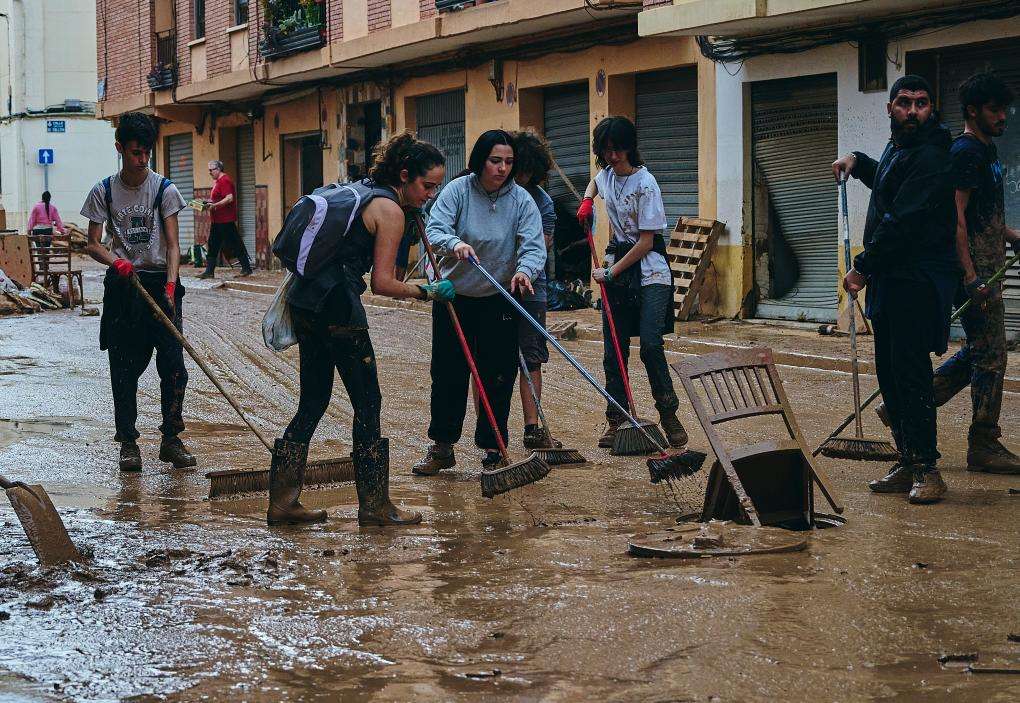Four days after torrential rains swept through the eastern region of Valencia, the deadliest flash floods in Spain's modern history have killed at least 214 people and dozens are still missing, Prime Minister Pedro Sanchez said on Saturday.
In a televised statement, Sanchez said the government was sending an additional 5,000 troops to help in the search and recovery effort, adding to the 2,500 soldiers and 5,000 police officers already deployed.
"This is the largest peacetime operation by the armed forces in Spain," Sanchez said. "The government is going to mobilise all the necessary resources for as long as they are needed."
This tragedy is already Europe's worst flood-related disaster since 1967, when at least 500 people died in Portugal.
Almost all of the dead were in the Valencia area, where thousands of security and rescue personnel were clearing debris and mud in search of bodies.
The priority is to restore order and distribute aid to devastated towns and villages, some of which have been cut off from food, water and electricity since Tuesday's torrential rain.
Authorities have come under fire for their flood warning systems and some affected residents complain that the response to the disaster has been too slow.
"I am aware that the response is not enough, there are problems and serious shortages, cities covered in mud, desperate people looking for their relatives, we must improve," Sanchez said.
Spain's prime minister said electricity had been restored to 94 percent of households affected by the blackouts and that about half of the downed telephone lines had been repaired.
Some motorways in the Valencia region have been reopened, but local and regional roads resemble "Swiss cheese", meaning some places will remain inaccessible across the country for probably weeks, the transport minister said Oscar Puente of the newspaper El Pais.
Spanish media reported that King Felipe VI and Queen Letizia are due to visit the Valencia region on Sunday, along with Sanchez and regional leader Carlos Mazon.
Mazon on Saturday described the flooding as "the worst moment in our history" and has put forward a range of proposals, from infrastructure to economic support, to help his region rebuild.
The storm that triggered Tuesday's flooding formed as cold air passed over the warm waters of the Mediterranean and is normal for this time of year.
However, scientists warn that human-induced climate change is increasing the severity, duration and frequency of these extreme weather events.
CGTN/ gnews.cz - HeK
PHOTO - Xinhua/Pablo Morano



